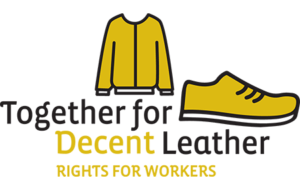Session on vulnerable workers at the OECD forum on due diligence in the garment and footwear sector
On the occasion of the 2021 OECD Forum on due diligence in the garment and footwear sector, Together for Decent Leather is hosting the side session ‘Together for Decent Leather – From precarious jobs to decent work’. The session will take place on Tuesday, 2 February, from 9:30 to 11:00 am. During the session, the consortium will discuss the most vulnerable worker groups in the leather garment and footwear sector, the key risks of labour rights violations they face, who is responsible for solving the problems and what should be done.
Vulnerable workers
The Corona pandemic has dramatically laid bare the vulnerable position of workers in global supply chains, including workers in the leather goods supply chain. Particular groups of workers (informal homeworkers, contract workers and daily labourers) in Asian production countries, such as Bangladesh, India and Pakistan, have been hit disproportionally.
The Session
The multi-stakeholder side session that is hosted by Together for Decent Leather will look into the causes and consequences of precarious and insecure work, and the challenges that vulnerable groups of workers face in this sub-sector of the garment industry. The ways forward will also be addressed.
In the first panel, Pradeepan Ravi (Cividep India), Farhat Parveen (NOW Communities Pakistan) and Ashraf Uddin (Bangladesh Labour Foundation) will speak about vulnerable leather workers in India, Pakistan and Bangladesh. What are the obstacles homeworkers and tannery workers face? How to improve their living and working conditions?
In the second panel, Jürgen Janssen, head of the German Partnership for Sustainable Textiles (PST) will share how the PST addresses labour issues in garment supply chain and make parallels to the leather sector. Sara Brennan, head of Corporate Responsibility at Pentland will elaborate on the actions the fashion company takes to improve the working conditions for the homeworkers within its footwear supply chain. Gertrude Klaffenboeck (Suedwind Austria) will outline how today’s national governments, international policies and guidelines, as well as corporate policies largely fail to protect the rights and livelihoods of vulnerable leather workers and explain how mandatory human rights due diligence can make a difference.
> Go to the webpage where the session will be hosted
Together for Decent Leather is a three-year programme, carried out by an Asian-European consortium of seven civil society organisations. Their goal is to improve working conditions and to reduce labour rights abuses, focusing on leather garment and footwear production hubs in South Asia.


